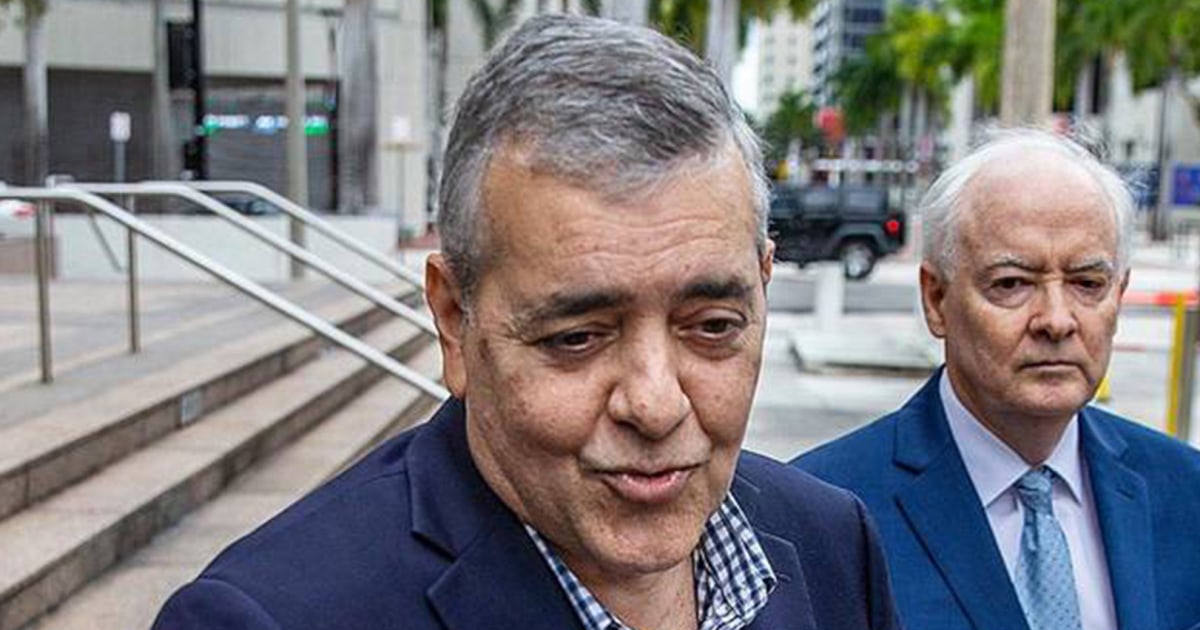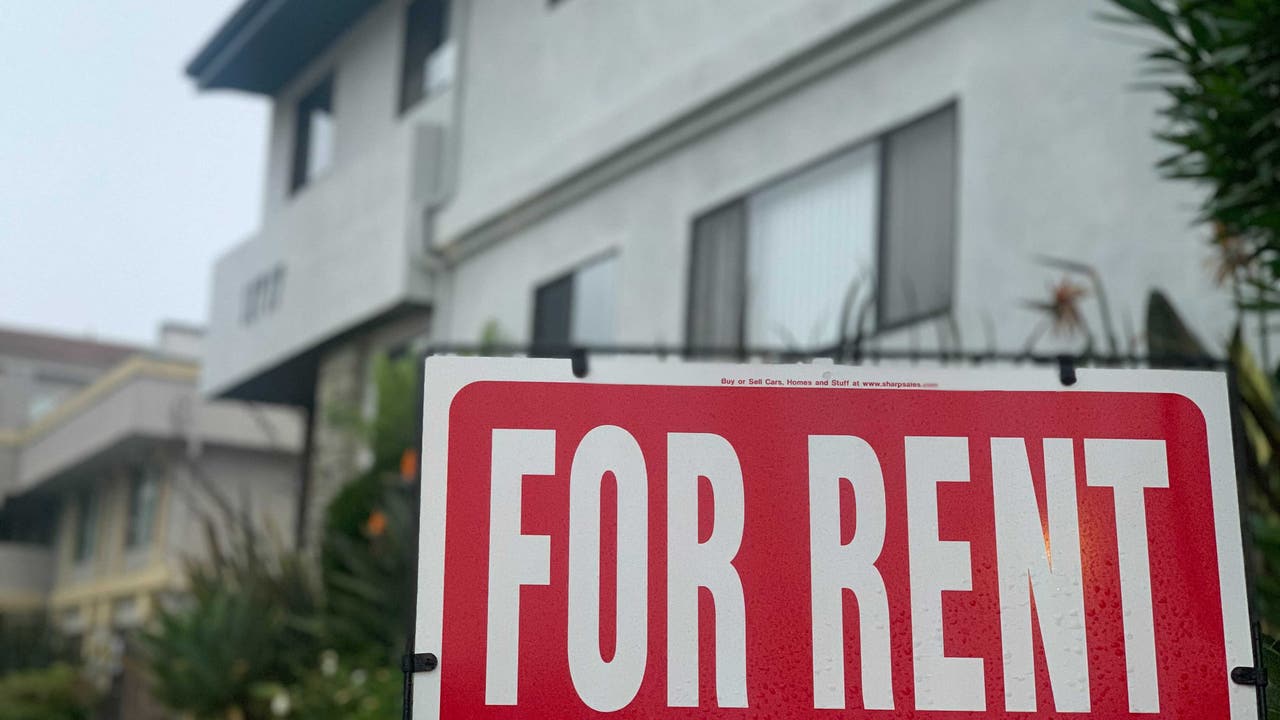Florida
Florida athletic board bans transgender volleyball player from HS sports for a year, school fined

Florida’s state athletic board fined a high school and put it on probation Tuesday after a transgender student played on the girls volleyball team, a violation of a controversial law enacted by Gov. Ron DeSantis and the Legislature.
The Florida High School Athletic Association fined Monarch High $16,500, ordered the principal and athletic director to attend rules seminars and placed the suburban Fort Lauderdale school on probation for 11 months, meaning further violations could lead to increased punishments.
The association also barred the girl from participating in boys sports for 11 months.
The 2021 law, which supporters named “The Fairness in Women’s Sports Act,” bars transgender girls and women from playing on public school teams intended for student-athletes identified as girls at birth.
The student, a 10th grader who played in 33 matches over the last two seasons, was removed from the team last month after the Broward County School District was notified by an anonymous tipster about her participation.
Her removal led hundreds of Monarch students to walk out of class two weeks ago in protest.
The Associated Press is not naming the student to protect her privacy.
“Thanks to the leadership of Governor Ron DeSantis, Florida passed legislation to protect girls’ sports and we will not tolerate any school that violates this law,” Education Commissioner Manny Diaz said in a statement. “We applaud the swift action taken by the Florida High School Athletic Association to ensure there are serious consequences for this illegal behavior.”
DeSantis’ office declined comment.
The governor was in Iowa on Tuesday, campaigning for the Republican presidential nomination.
He has made his enactment of the law and others that are similar a campaign cornerstone.
Jessica Norton, the girl’s mother and a Monarch information technician, went public last week. She reissued a statement Tuesday calling the outing of her daughter a “direct attempt to endanger” the girl.
The Human Rights Campaign, an LGBTQ+ rights organization that has been supporting the family, said in a statement that Tuesday’s ruling “does not change the fact that the law preventing transgender girls from playing sports with their peers is unconstitutionally rooted in anti-transgender bias, and the Association’s claim to ensure equal opportunities for student-athletes rings hollow. ”
“The reckless indifference to the well-being of our client and her family, and all transgender students across the State, will not be ignored,” wrote Jason Starr, the group’s litigation strategist.
According to court documents filed with a 2021 federal suit challenging the law on the girl’s behalf, she has identified as female since before elementary school and has been using a girl’s name since second grade.
At age 11 she began taking testosterone blockers and at 13 started taking estrogen to begin puberty as a girl.
Her gender has also been changed on her birth certificate.
A judge dismissed the lawsuit last month but gave the family until next month to amend it for reconsideration.
Broward County Public Schools in a short statement acknowledged receiving the association’s ruling and said its own investigation is ongoing. The district has 10 days to appeal.
The association also ruled that Monarch Principal James Cecil and Athletic Director Dione Hester must attend rules compliance seminars the next two summers and the school must host an on-campus seminar for other staff before July.
The school district recently temporarily reassigned Cecil, Hester, Norton and the assistant athletic director and suspended the volleyball coach pending the outcome of its investigation.
After the group’s reassignments, Norton thanked students and others who protested on their behalf.
“The outpouring of love and support from our community … has been inspiring, selfless and brave,” Norton said in last week’s statement. “Watching our community’s resistance and display of love has been so joyous for our family — the light leading us through this darkness.”

Florida
More South Florida school zones will be getting speed cameras – how it's been going

If you don’t look carefully, you could easily miss the cameras set up outside schools. They, however, are watching you, and if you’re going at least 10 miles over the speed limit, you will receive a $100 surprise in the mail.
“If you don’t want to get one of those violations just stay within the speed limit, very simple,” said Village of Pinecrest Police Chief Jason Cohen.
Pinecrest and South Miami were the first cities in South Florida to take advantage of a new state law allowing automated cameras to catch speeders in school zones. Since their systems went online in October, they’ve sent out about 7,400 citations in South Miami and about 5,800 in Pinecrest.
“It’s too early to say from the data on the overall impact it’s going to have around the schools, but we believe it’s going to change peoples’ driving patterns, that they’re going to be cognizant that they’re near a school and they’re going to automatically slow down, that’s the goal,” Cohen said.
Diane Gilmore has been a security monitor for decades at Palmetto Senior High School. She said she sees speeders fly past the school all the time as students are trying to cross the street, and she’s glad the cameras have been installed.
“I think they did a good idea because a lot of times, they be going across the street, these cars don’t respect us at all, they come fast and I say it ain’t careful, somebody gonna end up getting killed,” Gilmore said.
Students spilling out of school seem to appreciate the cameras.
“I think it’s good, ‘cause it controls the drivers so the drivers don’t speed and especially in a school zone,” said Nicholas Henriquez, a senior at Palmetto who drives to school.
Not everyone agrees. Christian Gutierrez picks up a student regularly and he’s not impressed with the cameras’ impact.
“Even speedbumps, I feel like, stops speeding,” Gutierrez said. “More than the cameras, yeah, for sure.”
The school zone cameras operate only on school days, starting a half hour before school starts and ending a half hour after school ends, no matter what the speed limit is during those hours. The police departments make $39 for each citation issued.
“But I think it’s important to highlight that the funds coming in have to be used for public safety,” Chief Cohen said. “Anything that can help make our city safer, especially around the children and the schools, we looked at it as a win.”
Soon, police departments in Miami Gardens, West Miami, Davie and Plantation will be starting up their own school zone camera systems. Miami-Dade Police have also installed cameras outside eleven schools with many more to follow. Cohen predicts almost all South Florida police departments will join the trend.
Florida
South Florida’s beachfront buildings found to be sinking faster than expected

A team of mechanical, architectural and environmental engineers, geoscientists, and geoinformation specialists affiliated with several institutions in the U.S. and Germany has found that many of the tall, heavy buildings along the coast of South Florida are sinking into the ground much faster than was expected.
In their study published in the journal Earth and Space Science, the group compared satellite images over several years to learn more about ongoing subsidence along multiple beachfronts.
Prior research has shown that many factors can lead to subsidence, in which the altitude of a given parcel of land declines. Natural causes include water movement, earthquakes and gravity. Manmade causes include the heaviness of the built environment, including large buildings, and activities including fracking and landscaping.
In this new study, the researchers noted that the many tall buildings along many parts of the coast in South Florida appeared to be extremely heavy. They wondered if adding so much weight might be causing the ground beneath them to sink.
To find out, the researchers obtained precise satellite imagery for several of the most popular beaches in South Florida and compared 35 buildings standing on them over time. Modern satellite imagery is so precise it can detect changes in altitude of just a few centimeters. The researchers found that every one of the buildings they measured was sinking, ranging from 2 to 8 cm over the years 2016 to 2023, and that most of them were sinking faster than expected.

The research team also found that there were differences in subsidence between beach areas. The worst, for example, was occurring on Sunny Isles Beach; after that was Surfside, site of the collapse of a 12-story building back in 2021. Miami Beach, they noted, was experiencing the least amount of subsidence.
Because of the building collapse three years ago, the researchers took a closer look at Surfside to find out if subsidence may have been a contributing cause and found no evidence. Even if the building had been sinking, they note, it should not have led to structural damage unless it was sinking unevenly, with one part of the ground under the building sinking faster than another.
They suggest more work is required to determine if that is happening to any of the buildings in South Florida, and if so, to warn their owners.
More information:
Farzaneh Aziz Zanjani et al, InSAR Observations of Construction‐Induced Coastal Subsidence on Miami’s Barrier Islands, Florida, Earth and Space Science (2024). DOI: 10.1029/2024EA003852
© 2024 Science X Network
Citation:
South Florida’s beachfront buildings found to be sinking faster than expected (2024, December 19)
retrieved 19 December 2024
from https://phys.org/news/2024-12-south-florida-beachfront-faster.html
This document is subject to copyright. Apart from any fair dealing for the purpose of private study or research, no
part may be reproduced without the written permission. The content is provided for information purposes only.
Florida
Former Florida congressman indicted on foreign agent charges

Former Rep. David Rivera, R-Fla., was indicted Tuesday on charges that he violated the Foreign Agents Registration Act and laundered funds in order to “conceal and promote his criminal conduct,” the Justice Department said on Wednesday.
In the indictment, Rivera is accused of working “as an agent” of Raul Gorrín Belisario, a Venezuelan national who the Treasury Department said played a role in a “corruption scheme” to bribe the national treasurer of Venezuela.
Rivera “sought to lobby senior U.S. government officials” on Gorrín’s behalf, attempting to have Gorrín removed from a list he was placed on because of the alleged bribery, according to the indictment returned by the grand jury.
Under the Foreign Agents Registration Act (FARA), anyone who has agreed to work in a certain capacity for a foreign government’s interest, either through the government itself or an intermediary, must register with the U.S. government.
The indictment also alleges that Rivera created shell companies “to conceal and promote his crimes.” The alleged scheme took place in 2019 and 2020, according to the indictment.
The FBI Miami Field Office, which the DOJ said is investigating the case, did not immediately respond to a request for comment Wednesday night. An attorney for Rivera also did not immediately respond to a request for comment.
Rivera was previously arrested and indicted in 2022. Prosecutors alleged in that case that Rivera tried to “act and cause others to act in the United States as an agent of a foreign principal,” referring to the Venezuelan government, without registering with the U.S. government.
The Miami Herald reported on Wednesday that Rivera in a statement referred to the various FARA allegations as “false,” arguing that Tuesday’s indictment was “just another politicized indictment against a Republican, right before the Trump administration brings back sanity and fairness to this weaponization of the justice system.”
Rivera served in Congress from 2011 to 2013.
-

 Politics6 days ago
Politics6 days agoCanadian premier threatens to cut off energy imports to US if Trump imposes tariff on country
-
/cdn.vox-cdn.com/uploads/chorus_asset/file/25782636/247422_ChatGPT_anniversary_CVirginia.jpg)
/cdn.vox-cdn.com/uploads/chorus_asset/file/25782636/247422_ChatGPT_anniversary_CVirginia.jpg) Technology1 week ago
Technology1 week agoInside the launch — and future — of ChatGPT
-
/cdn.vox-cdn.com/uploads/chorus_asset/file/25789444/1258459915.jpg)
/cdn.vox-cdn.com/uploads/chorus_asset/file/25789444/1258459915.jpg) Technology6 days ago
Technology6 days agoOpenAI cofounder Ilya Sutskever says the way AI is built is about to change
-

 Politics6 days ago
Politics6 days agoU.S. Supreme Court will decide if oil industry may sue to block California's zero-emissions goal
-
/cdn.vox-cdn.com/uploads/chorus_asset/file/25546252/STK169_Mark_Zuckerburg_CVIRGINIA_D.jpg)
/cdn.vox-cdn.com/uploads/chorus_asset/file/25546252/STK169_Mark_Zuckerburg_CVIRGINIA_D.jpg) Technology6 days ago
Technology6 days agoMeta asks the US government to block OpenAI’s switch to a for-profit
-

 Politics1 week ago
Politics1 week agoConservative group debuts major ad buy in key senators' states as 'soft appeal' for Hegseth, Gabbard, Patel
-

 Business4 days ago
Business4 days agoFreddie Freeman's World Series walk-off grand slam baseball sells at auction for $1.56 million
-
/cdn.vox-cdn.com/uploads/chorus_asset/file/23951353/STK043_VRG_Illo_N_Barclay_3_Meta.jpg)
/cdn.vox-cdn.com/uploads/chorus_asset/file/23951353/STK043_VRG_Illo_N_Barclay_3_Meta.jpg) Technology4 days ago
Technology4 days agoMeta’s Instagram boss: who posted something matters more in the AI age


















